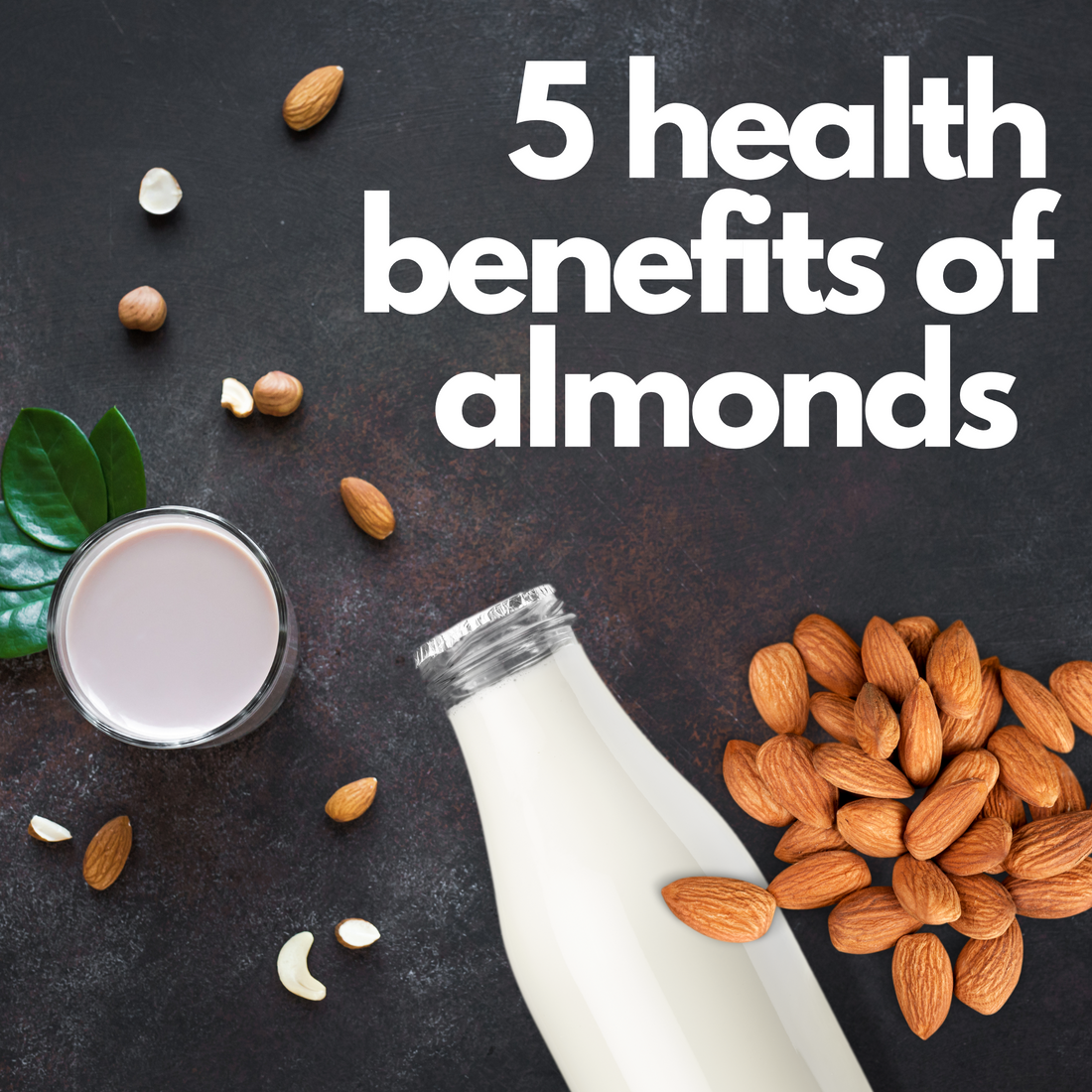
5 Health Benefits of Almonds
Almonds are nutrient powerhouses. Almonds can be consumed whole, chopped, sliced, or ground into almond flour or almond butter. They can even be made into milk! This deliciously satisfying nut truly deserves its superfood status
Almonds Are Nutrient-Rich
One ounce of almonds, which is about a quarter cup or 23 whole nuts, provides a generous amount of heart-healthy fat, along with 7 g of plant protein, 4 g of filling fiber (13% of the daily minimum), 20% for magnesium, B vitamins, and smaller amounts of calcium, iron, and potassium.
Importantly, one ounce of almonds provides half of the daily target for vitamin E (7 mg of 15 mg recommended). Vitamin E acts as an antioxidant, protecting cells from damage that can lead to premature aging and disease.
They're Packed With Antioxidants
As mentioned above, the vitamin E content makes almonds a vital source of antioxidants. Much of the antioxidant content in almonds is concentrated in their brown layer of skin.
The abundant antioxidants contained in almonds play an important role in protection from chronic diseases. The frequent consumption of almonds has been associated with a reduced risk of various diseases, including obesity, hypertension, diabetes, and metabolic syndrome.4
Almonds Can Help Gut Health
Both raw and roasted almonds have been found to act as prebiotics, which serve as food for the beneficial bacteria in the gut linked to immunity, anti-inflammation, and mental health. In a 2016 study published in the Journal of the Science of Food and Agriculture, college students were randomly assigned to snack on almonds or graham crackers.
After eight weeks, researchers observed that the almond eaters experienced important changes in their gut microbiome makeup, including a decrease in a pathogenic (disease-causing) bacterium and an increase in the diversity of bacteria tied to positive outcomes. These positive outcomes included weight management, insulin function, cholesterol regulation, and anti-inflammation.5
They Keep Your Heart Healthy
Almonds protect your heart in several ways.
Almonds and other nuts also help reduce blood pressure and improve vascular function, meaning they help blood vessels relax and reduce artery stiffness.
In a study published in the Journal of the American Heart Association, people with high cholesterol were divided into two groups that were randomly assigned to a cholesterol-lowering diet that contained either 1.5 ounces of almonds, or the same number of calories from a nut-free muffin. After two weeks the nut eaters experienced a reduced LDL while maintaining HDL. The almonds eaters also had reductions in belly and leg fat.
Almonds Can Aid Weight Regulation
The consumption of tree nuts, including almonds, has been shown to reduce body mass index, or BMI (a measure of weight compared to height) and reduce waist measurements, according to a 2015 study in Nutrition Journal. In addition to the participants being satiating, the study found that the combo of healthy fat, plant protein, and fiber in almonds boosts feelings of fullness and delays the return of hunger.8
Also, a 2012 study found that you actually get about 20% fewer calories from almonds than the labels state. That's because some of the calories are not absorbed from the digestive tract into the bloodstream.
Did you know our Super Pop Almond Butter bars have around 29 almonds per bar! Try our almond butter lovers pack today!


